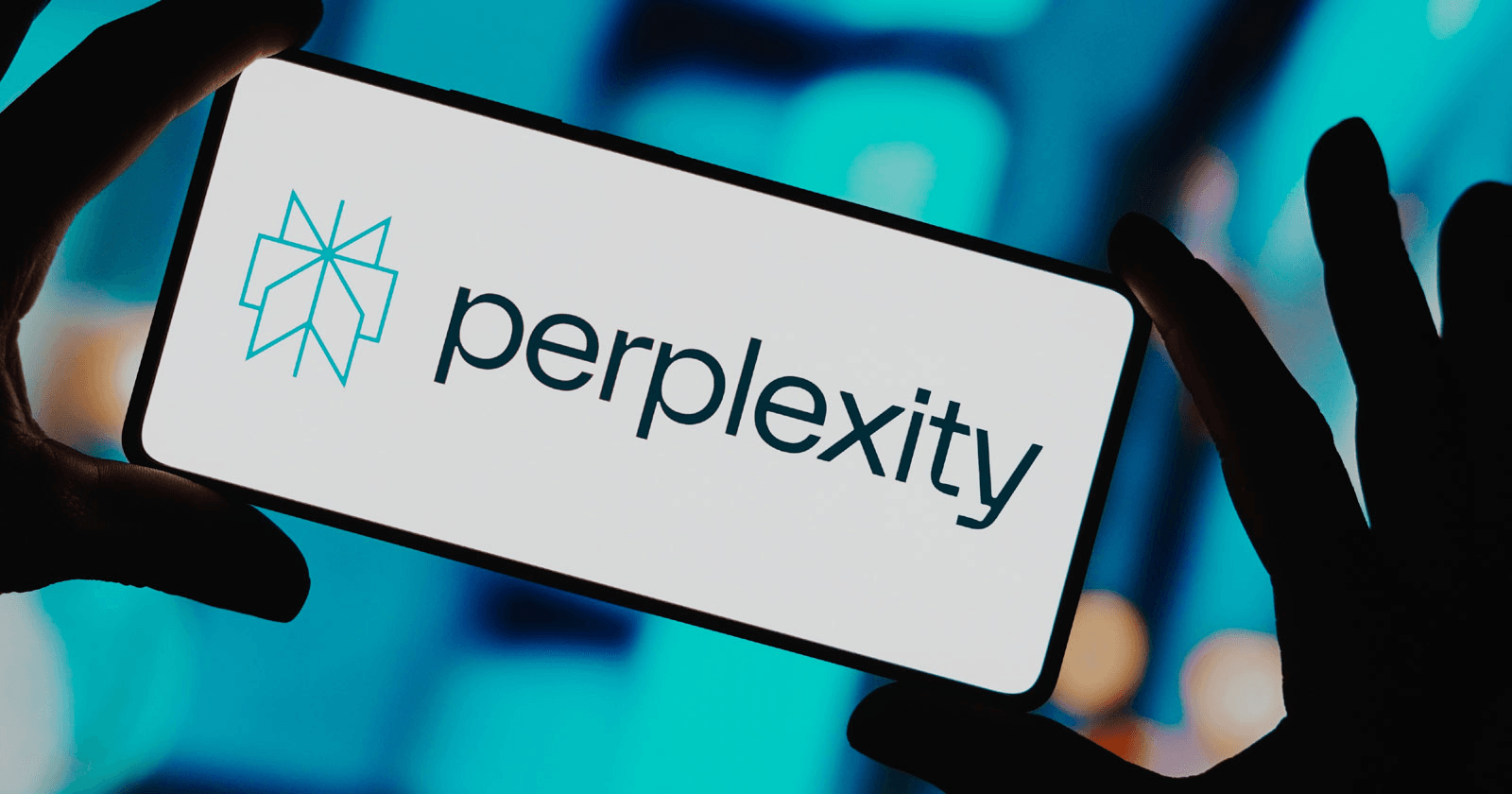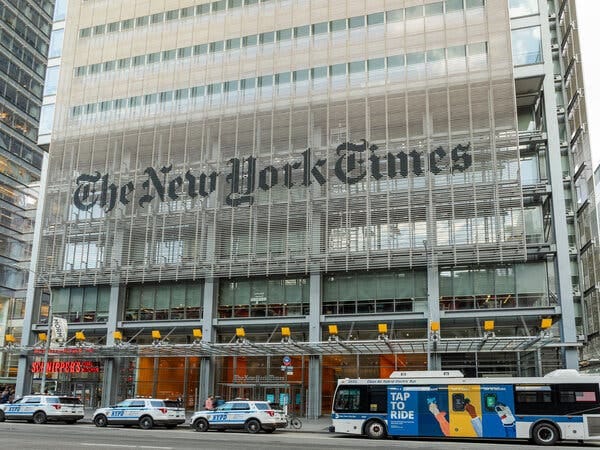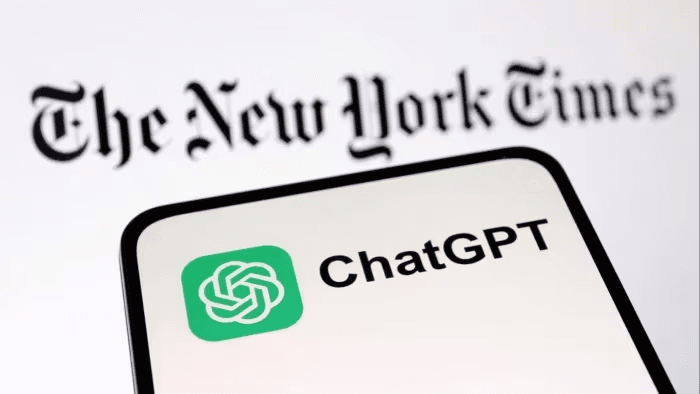AI vs. Publishers: The New York Times Takes on Perplexity in Latest Copyright Battle
There's a storm brewing in the world of news, and it's pitting old-school journalism against cutting-edge tech. The New York Times, a heavyweight in the news world, is squaring off against AI startup Perplexity.
This isn't just about fancy new search engines – it's a fight that could change how we all stay informed. Let’s know the full length of the story because it might just reshape our daily news habits.
What is Perplexity?

Perplexity is a new player in the world of internet search. It's a startup company that uses artificial intelligence (AI) to help people find information online.
Founded: Perplexity launched two years ago, in 2022
Backing: Jeff Bezos, the founder of Amazon, has invested money in the company
Goal: To challenge Google's dominance in online search
What makes Perplexity different is how it works:
Instead of just showing links, Perplexity tries to answer questions directly
When you type a question, it uses AI to create a summary of the answer
It also shows some sources and links to back up its information
The company has been growing quickly:
In September 2024, people used Perplexity for 340 million searches
While this is much less than Google, it shows Perplexity is gaining users
Earlier in 2024, the company's value doubled to about $1 billion
Perplexity makes money in a few ways:
It has a $20 monthly subscription for access to more powerful AI features
The company plans to start showing ads under its search results
It might share some of this ad money with publishers whose content it uses
While Perplexity is still much smaller than Google, it's trying to change how we search for information online. Its use of AI to create direct answers is attracting attention from both users and investors.
Why NYT Faces Off Against Perplexity?

The New York Times has thrown down the gauntlet against Perplexity, sending a cease-and-desist notice that's stirring up the AI world. The Times claims Perplexity is using its content without permission, creating AI-generated summaries from news articles and displaying them in search results. NYT argues this violates their copyright and could lead to loss of website traffic and ad revenue.
Perplexity is more than just another tech startup. It's challenging Google's search dominance with an AI-powered approach that could change how we find information online. The company is growing fast, with millions of monthly searches.
Key points in this dispute:
NYT demands Perplexity stop accessing and using its content
Perplexity's AI summaries are at the centre of the controversy
The case highlights tensions between AI companies and content creators
Adding intrigue to the story, Jeff Bezos, Amazon's founder, is one of Perplexity's backers. This gives the company more credibility and resources, but also raises eyebrows in the tech world.
This face-off isn't just about two companies. It's part of a larger debate about AI, copyright, and the future of online information. As AI reshapes how we access content, these legal battles may set important precedents for the digital age.
AI Search: Friend or Foe to Journalism?

The rise of AI-powered search engines like Perplexity is sparking a heated debate in the media world. This new technology promises instant answers but also raises concerns about the future of journalism.
The Promise: Instant answers at your fingertips
AI search offers users quick, concise summaries of information. This can be incredibly convenient, saving time and effort when looking for specific facts or overviews. For many, it's like having a knowledgeable assistant always ready to help.
Benefits include:
Faster access to information
Simplified complex topics
Reduced time spent sifting through multiple sources
Could AI kill News Organizations?
However, this convenience comes with potential drawbacks for news organisations. There's growing concern that AI-generated summaries might replace the need for full articles, leading to:
Reduced website traffic for publishers
Decreased ad revenue
Less engagement with in-depth reporting
This shift poses challenges for journalism, potentially affecting the depth and quality of reporting in the long run.
Not Their First Rodeo: NYT's Ongoing Battle with AI

The New York Times' clash with Perplexity isn't an isolated incident. It's part of a larger struggle between traditional media and AI companies.
The Times has already locked horns with OpenAI, suing them and Microsoft for copyright infringement. They claim these companies used NYT content without permission to train AI models like ChatGPT and Copilot.
While both cases involve AI and content use, there are key differences:
Perplexity focuses on search, while ChatGPT is conversational AI
The current dispute centres on AI-generated summaries in search results
The NYT's actions raise important questions about journalism's future in the AI age. Some see it as a necessary stand against unauthorized content use, while others view it as resistance to inevitable progress.
This ongoing battle highlights the complex challenges facing both publishers and AI companies. Finding a balance between innovation and protecting intellectual property will be crucial for digital media's future.
Money Talks: The Economics of AI vs. Traditional Publishing

The clash between AI companies and traditional publishers boils down to economics. AI firms like Perplexity profit from news content without directly compensating publishers, benefiting from free access to high-quality information and increased user engagement.
Publishers worry that AI-generated summaries might satisfy readers enough to skip full articles, leading to fewer website visits and reduced subscriber numbers. This poses a significant threat to their subscription-based revenue models.
Even when AI search engines provide links, users might not click through.
This creates an ad revenue conundrum:
Fewer page views mean less ad revenue for publishers
AI companies may capture ad value without sharing profits
As this economic battle unfolds, the industry faces a key challenge: finding a fair model that supports both AI innovation and quality journalism. The outcome could reshape the future of digital media and how we consume news.
What's at Stake for You, the Reader?

As AI search engines like Perplexity clash with traditional publishers, you might wonder how this affects your daily news consumption.
Let's break it down:
Pros:
Quick, concise summaries at your fingertips
Easy access to information on complex topics
Cons:
Potential loss of context and nuance
Risk of missing out on in-depth reporting
Detecting subtle biases or misinformation
Providing the depth of analysis human journalists offer
Quality journalism remains crucial for an informed society. If you want to be a part of helping quality journalism.
You can help by:
Subscribing to reputable news sources
Clicking through to full articles when possible
Being aware of where your news comes from
What could be the Future of AI in News

The future of AI in news is likely to be a blend of innovation and tradition, with both collaboration and competition shaping the landscape. As tensions between AI companies and publishers evolve, we might see new partnerships emerge.
Potential compromises could include revenue-sharing models or AI companies licensing content directly from publishers. This could lead to more sophisticated AI tools that enhance, rather than replace, traditional journalism.
We might see:
New regulations specific to AI's use of published content
Clearer guidelines on what constitutes fair use in the digital age
Looking ahead five years, your news consumption could look dramatically different.
AI might curate personalized news feeds that combine summaries with links to in-depth articles. You might interact with AI assistants who provide context and background on complex stories, all while ensuring that quality journalism remains financially viable.
However, the human touch in journalism will likely remain irreplaceable. AI could handle data-driven reporting, freeing up journalists to focus on investigative work and nuanced analysis.
The key will be finding a balance that leverages AI's strengths while preserving the critical thinking and ethical considerations that human journalists bring to the table.
Conclusion
The New York Times vs Perplexity isn't just about a newspaper picking a fight with an AI upstart. It's a high-stakes game of digital chess where the future of news hangs in the balance. On one side, we have the Times, defending its journalistic turf and subscription model. On the other, Perplexity, armed with AI and Jeff Bezos's backing, promises a search revolution.
But this isn't just a New York story. It's a glimpse into a world where AI might become your personal news curator, leaving traditional publishers scrambling for relevance. The ripple effects could hit everything from your morning news routine to how laws handle AI and copyright.
As this drama unfolds, we need to see how these courtroom battles will turn into surprise alliances, and perhaps a whole new way of consuming news. Certainly, the way we read the news is about to get a major rewrite.
Frequently Asked Questions
1. Is Perplexity better than Google?
While Perplexity offers innovative AI-generated summaries, it's hard to claim it's "better" than Google. Perplexity is growing fast, processing 340 million searches in September 2024, but that's still a fraction of Google's volume. Perplexity's strength lies in providing quick, direct answers, but Google's vast index and established features make it more comprehensive. The "better" choice depends on your specific needs and preferences.
2. What is the rank of the New York Times newspaper?
As of 2023, The New York Times is the second-largest newspaper by print circulation in the United States, with 296,330 print subscribers. This ranking underscores its significant influence and reach in the American media landscape, despite the digital transformation of news consumption.
3. Is Perplexity AI free?
Perplexity AI offers a free basic service, allowing users to access its AI-powered search capabilities without charge. However, for more advanced features, there's a $20 monthly subscription option. The company plans to introduce ads in search results soon, likely for free users.

Comments
Your comment has been submitted